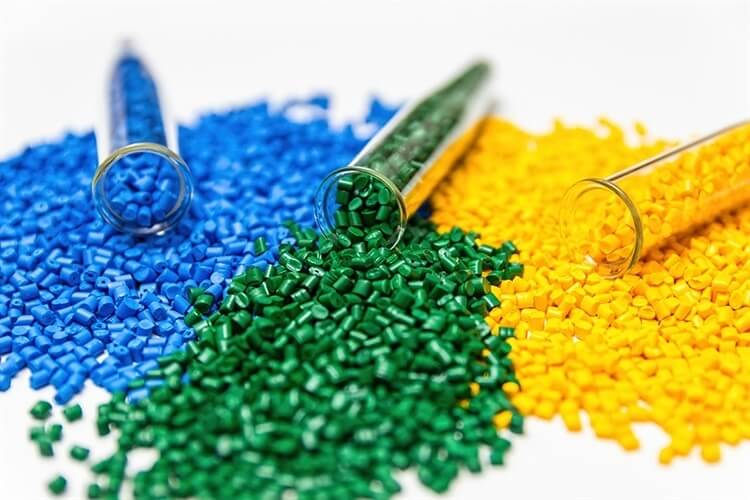Discovering the Varied Applications and Benefits of Polymers in Different Industries
Polymers, with their diverse variety of residential or commercial properties and capabilities, have actually come to be essential in different industries, each enjoying one-of-a-kind advantages from their application. From enhancing security and efficiency in the automobile industry to transforming medical gadgets in the health care industry, polymers play a pivotal role.
Automotive Industry Applications
Polymers play an essential role in boosting the performance and toughness of various parts within the automobile market. These versatile materials are extensively utilized in the production of different parts, varying from interior parts to under-the-hood applications. One famous use of polymers in the auto sector is in the manufacturing of light-weight elements. By replacing standard steel get rid of polymer-based alternatives, automobiles can attain better fuel performance without compromising on strength or safety and security.

Medical Care Industry Advantages
In different medical care applications, the advantages of utilizing polymers are commonly identified for their diverse variety of beneficial residential properties. Polymers play an important duty in the medical care market due to their versatility, biocompatibility, and cost-effectiveness. Among the primary advantages of polymers in medical care is their ability to be customized to details needs, such as versatility, durability, and biodegradability, making them suitable for a wide variety of medical applications.
Polymer-based materials are thoroughly used in clinical gadgets, such as catheters, implants, prosthetics, and medicine shipment systems, as a result of their biocompatibility and ability to mimic all-natural cells. These products can minimize the threat of allergies or rejections, boosting client safety and end results. Additionally, polymers are light-weight, making them appropriate for wearable medical devices and guaranteeing person convenience.
In addition, polymers make it possible for the growth of cutting-edge treatment approaches, such as hydrogels for cells design and nanocomposites for targeted medication delivery. Their simplicity of handling and sterilization makes them vital for preserving high criteria of hygiene in health care setups. Generally, the diverse advantages of polymers add considerably to advancements in medical innovation and person care.
Environmental Advantages of Polymers

In addition, polymers can add to power financial savings as a result of their light-weight nature. In industries such as transport, light-weight polymer products can help minimize fuel consumption and greenhouse gas exhausts. Furthermore, polymers can allow the growth of energy-efficient items such as insulation products that improve power conservation in structures.
In addition, polymers play an important role in reducing water pollution. For instance, making use of polymer-based filtering systems can efficiently get rid of pollutants and contaminants from wastewater, protecting water resources and ecological communities. Overall, the environmental benefits of polymers make them beneficial assets in promoting sustainability and eco-friendly practices across numerous industries.
Polymers in Electronic Devices and Modern Technology
Considering the increasing demand for innovative and lasting services in contemporary industries, the assimilation of advanced polymer innovations in the realm of electronic devices and modern technology has become a critical method for driving efficiency and efficiency. Polymers have changed the electronics market by allowing the production of lighter, extra adaptable, and durable electronic gadgets. From smart devices to clinical devices, polymers play a vital role in enhancing item style and capability.
One significant advantage of polymers in electronics is their insulating residential or commercial properties, which assist secure delicate electronic parts from ecological elements and electrical disturbance. Additionally, polymers are necessary in the advancement of adaptable display screens, wearable technology, and published electronic devices, offering unlimited opportunities for developing clever and interconnected tools.
Furthermore, the use of polymers in electronic Learn More Here product packaging has actually caused improvements in miniaturization and thermal monitoring, boosting the check out this site total performance and dependability of digital systems. As innovation continues to develop, the adaptability and flexibility of polymers will certainly drive better advancement in the electronics sector, shaping the future of technology.
Function of Polymers in Construction and Facilities
The integration of advanced polymer products in building and construction and infrastructure tasks has actually reinvented the way frameworks are made and integrated in contemporary times. Polymers provide numerous advantages in the building and construction market due to their flexibility, toughness, and cost-effectiveness. One key duty of polymers in building and construction is their use in finishes and sealants, supplying protection versus ecological aspects such as wetness, UV radiation, and deterioration. In addition, polymers are used in the production of lightweight and high-strength composite materials, boosting the architectural stability of buildings while reducing overall weight.
In addition, polymers play a crucial function in sustainable building techniques by enabling the development of energy-efficient structures. Insulating materials made from polymers help regulate interior temperatures, lowering the demand for heating and cooling down systems and inevitably decreasing energy consumption - Polymers.
Verdict
To conclude, polymers play an essential duty in different industries such as automobile, healthcare, environmental, electronics, and building. Their versatile residential or commercial properties make them useful in creating ingenious options and items. From boosting fuel performance in automobiles to enhancing medical tools, polymers supply numerous benefits. Furthermore, their influence on lowering waste and advertising sustainability highlights their significance in contemporary applications. The extensive use of polymers shows see this their substantial contribution to advancing innovation and boosting high quality of life.